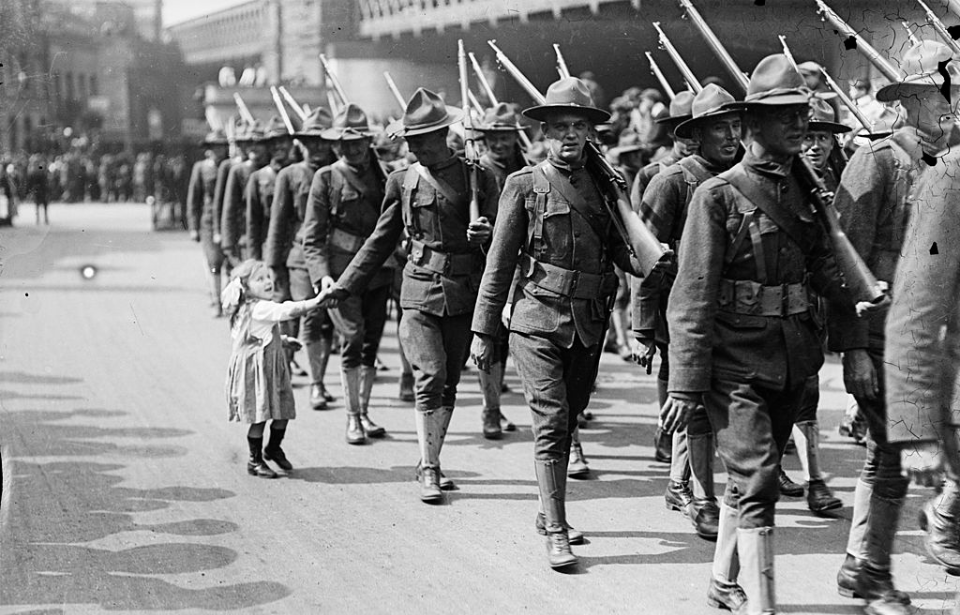World War I was truly the first conflict of its kind, engulfing much of the world from 1914-18. While the majority involved became embroiled in the fighting as soon as the war began, there was one nation that waited: the United States. Initially, US President Woodrow Wilson urged Americans to remain impartial observers and, instead, focused on domestic concerns. However, as WWI progressed, the stakes became ever higher, prompting the US’ inevitable entry into the conflict.
The situation began to change as the war intensified and reports of atrocities and human suffering reached America’s shores. Public sympathy toward the Triple Entente – particularly Britain and France – grew, while disdain for Germany’s aggressive actions escalated.
There was one key event that influenced the US entry into WWI: the sinking of RMS Lusitania by a German U-boat in 1915. The attack resulted in the loss of nearly 1,200 innocent lives, including 128 Americans, and sparked outrage Stateside. This prompted Wilson to demand an end to Germany’s U-boat policy.
This worked for awhile, but, by 1917, the Imperial German Navy was, yet again, engaging in unrestricted submarine warfare. Additionally, the German military took the step of offering Mexico the prospect of reclaiming lost territory from the US if the country joined the war on the side of the Central Powers. British Intelligence intercepted and decoded what became known as the Zimmermann Telegram, revealing Germany’s sinister plot.
This revelation further galvanized the American public’s opinion against Germany and pushed the nation closer to conflict. On April 2, 1917, Wilson appeared before Congress to ask for a declaration of war against Germany, stating the world must be made safe for democracy. Congress overwhelmingly supported the decision and, four days later, the US officially entered WWI.
US military forces and resources were now committed to the Triple Entente, marking a significant turning point in the conflict’s dynamics.
The entry of the US into WWI had a profound impact on the outcome of the conflict. The influx of fresh American troops injected new momentum into the war effort, as these soldiers brought with them manpower, modern weaponry and industrial capabilities that tipped the balance in favor of the Triple Entente. They also bolstered morale and gave other troops renewed hope for victory.
The American “doughboys” earned a reputation for their bravery, resilience and dedication on the battlefield, and their presence provided a much-needed boost to the war-weary Europeans, who weren’t the only ones excited to see them arrive. The above photo shows the excitement of a young English girl as she shakes the hand of a US soldier marching through London on August 15, 1917, before he’s deployed to France.
More from us: The Bravery and Dedication of US Army Chaplains During the Korean War
The renewed push pressured Germany to the bargaining table. In November 1918, the armistice was signed, effectively ending the fighting on the Western Front and signaling the country’s defeat. In the aftermath of the conflict, Wilson played a crucial role in formulating the Treaty of Versailles, which aimed to establish a lasting peace. However, its punitive measures against Germany, coupled with unresolved tensions and issues, only sowed the seeds of future war.
